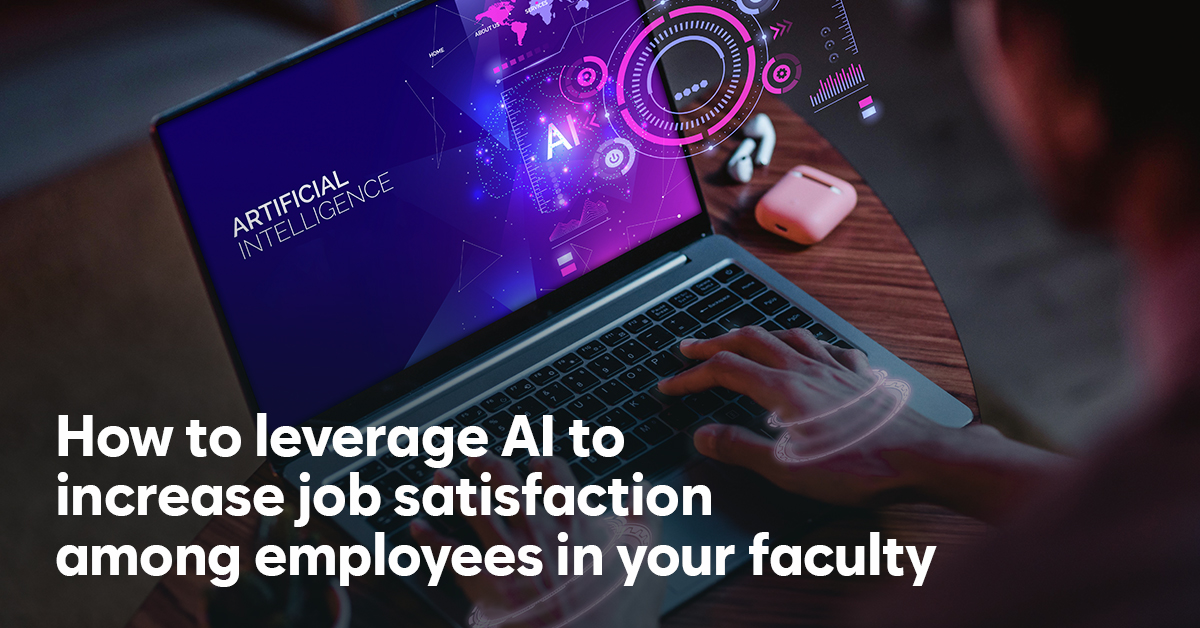In the rapidly evolving landscape of healthcare, the integration of AI tech and the establishment of smart hospitals have become pivotal in reshaping the work environment for nurses. Traditionally, nursing has been a demanding profession, with nurses facing challenges such as heavy workloads, administrative burdens, and long hours.
However, the infusion of AI and smart technologies is ushering in a new era. They are enhancing the efficiency of healthcare delivery and thus increasing job satisfaction among nurses.
1. Streamlining Administrative Tasks
One of the primary ways AI is improving the work life of nurses is by automating routine administrative tasks. Nurses are often burdened with paperwork, documentation, and other administrative responsibilities that can be time-consuming and mentally exhausting. With AI, these tasks can be streamlined, allowing nurses to focus more on patient care.
Smart hospital systems utilize AI algorithms for tasks like data entry, appointment scheduling, and even patient record management. This not only reduces the administrative burden on nurses but also minimizes the likelihood of errors associated with manual record-keeping. As a result, nurses can allocate more of their time and energy to direct patient interactions and providing high-quality care.
2.Enhanced Patient Monitoring
AI-powered monitoring systems play a crucial role in modern healthcare settings. These systems continuously collect and analyze patient data, providing real-time insights into a patient’s health status. This proactive approach enables nurses to identify potential issues before they escalate, allowing for timely interventions.
For nurses, this means fewer instances of emergencies and a more predictable workflow. Instead of reacting to critical situations, nurses can focus on preventive care and early interventions. This shift not only improves patient outcomes but also contributes to a sense of accomplishment and job satisfaction among nurses who can see the positive impact of their work on patient well-being.
3.Personalized Patient Care Plans
AI algorithms can analyse vast amounts of patient data to identify patterns and trends that may go unnoticed by human observation alone. This capability allows for the development of personalized patient care plans tailored to individual needs and conditions.
Nurses, armed with AI-generated insights, can provide more targeted and effective care. This not only enhances the quality of patient care but also empowers nurses to feel more engaged and valued in their roles. The ability to contribute to personalized care plans fosters a sense of professional fulfilment and reinforces the importance of nursing expertise in the healthcare ecosystem.
4.Predictive Analytics for Staffing and Workload Management
AI-driven predictive analytics have revolutionized the way hospitals manage staffing and workload distribution. By analyzing historical data, patient admission rates, and other relevant factors, AI algorithms can predict peak times and allocate staffing resources accordingly. This not only ensures that there are enough nurses on duty during high-demand periods but also prevents unnecessary overstaffing during slower times.
For nurses, this means a more balanced and manageable workload. Predictive analytics help prevent situations where nurses are overwhelmed with patients or have too much idle time. The result is a more predictable and organized work environment, contributing to reduced stress levels and increased job satisfaction.
5.Professional Development Opportunities
Smart hospitals invest in continuous training and education programs facilitated by AI. These programs are designed to keep nurses updated on the latest advancements in healthcare technology and best practices. By engaging in ongoing professional development, nurses not only enhance their skills but also feel more confident and fulfilled in their roles.
AI-driven educational platforms can personalize learning experiences, catering to each nurse’s unique needs and preferences. This not only ensures that nurses stay abreast of the latest medical knowledge but also allows them to explore specialized areas of interest. The opportunity for continuous learning contributes to a sense of professional growth and job satisfaction among nurses.
Conclusion
The integration of AI technology and the establishment of smart hospitals are transforming the landscape of nursing. By automating administrative tasks, enhancing patient monitoring, personalizing patient care plans, optimizing staffing through predictive analytics, and offering professional development opportunities, AI is fostering an environment where nurses can thrive. The result is an improvement in the efficiency and quality of healthcare delivery. Moreover, there is also a significant increase in job satisfaction among nurses.
As technology continues to advance, the synergy between AI and nursing will likely play a pivotal role in shaping the future of healthcare, ensuring that nurses can focus on what matters most – providing exceptional care to their patients.






